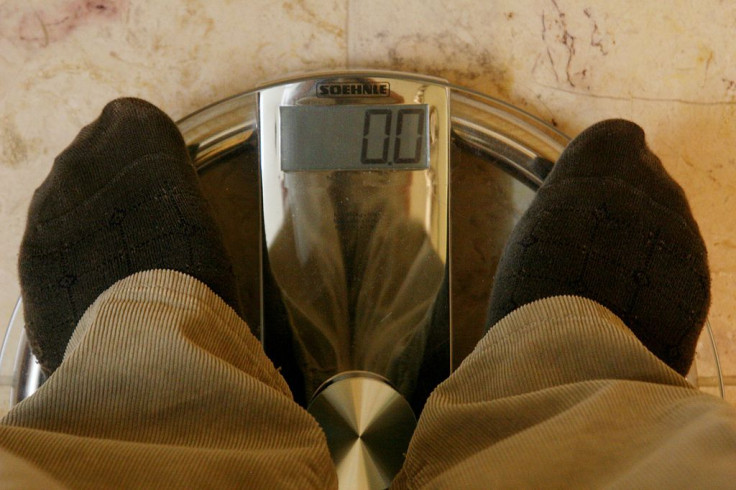Planning For A Baby? Obesity Linked To Changes In Sperm DNA Associated With Appetite

Listen up fellas: If you’re not going to get in shape for your own good, at least do it for the good of your future children. That's because a new study has found obesity can change the genetic makeup of sperm cells in a way that may influence the appetite of future offspring. The same study found these changes may be reversed by losing weight, further highlighting how important good health is for not only moms-to-be, but also expectant fathers.
For the study, researchers from the University of Copenhagen in Denmark looked at the sperm of 13 lean men and 10 obese men in an effort to find biomarkers that would affect weight. Sperm samples from both groups turned up epigenetic markers in regions of the genome associated with the control of appetite, although they appeared differently between the two groups.
Epigenetic changes in the genome occur when lifestyle and the environment affect the way in which genes are expressed. Dr. Ida Donkin, co-author of the study, explained to Medical Daily in an email that our knowledge of epigenetic changes is still limited, but she believes these changes affect all of our genes differently. “Some features are more stable and others more susceptible to changes in the parent’s pre-conceptual lifestyle,” she wrote.
The epigenetic changes identified in the sperm suggests a parent's lifestyle could affect their offspring's appetite, and possibly even their body shape.
Change Is Possible
During the same study, researchers investigated whether significant weight change could also affect epigenetic markers. The team followed six men before and after they underwent gastric bypass surgery, and found an average of 4,000 structural changes to sperm cell DNA during the time period before surgery, directly after, and up to one year later.
Donkin explained that it's difficult to say if the exact same effect would be seen in weight loss without surgery, she did note that her yet to be published research shows that just six weeks of exercise could bring about epigenetic changes in human sperm cells.
“Something tells us that weight-loss — no matter the tool you use to obtain it — will change the information of the sperm cells, and most likely influence the development, and risk of disease, of your children,” Donkin wrote.
Co-author Romain Barres, meanwhile, said such changes make sense from an evolutionary perspective. Extra weight has historically been advantageous and protected our ancestors from infections and famines. In the past, it would have been highly valuable for males to pass on their weight information to their offspring. “It's only recently that obesity is not an advantage," Barre said in a statement .
Father’s Health Is Important,Too
Although we know that a mother’s lifestyle, both before and during pregnancy, has an effect on the health of her unborn baby, this new study as well as others, have suggested the same may be true for fathers. A 2013 study from Duke University, for example, found fathers’ obesity could also contribute to epigenetic changes that increased their child’s risk of cancer. Another 2013 study on male mice, meanwhile, found that litters of male mice who were purposely denied folate experienced a 30 percent increase in birth defects.
“We have been telling mothers-to-be for years that they have to take care of their diet, to exercise and stay away from cigarettes and alcohol when pregnant or wanting to become so,” wrote Donkin. “This study tells us that the dads should also improve their lifestyle before conception, as their bad behavior might as well affect their children.”
It’s important to note that the study is small. In addition, although the researchers identified epigenetic changes in obese sperm associated with appetite, they did not actually prove that these changes were the reason children of obese men sometimes became obese. Still, the findings are significant in that they show not only does a man’s lifestyle affect the health of his future children, but also that weight loss can affect the way these genes are expressed.
Further research is needed to better understand the role that a father’s pre-conceptual health plays in that of their future offspring, but the team hopes their findings will help raise awareness of how important lifestyle factors are for both men and women prior to conception.
Source: Donkin I, Versteyhe S, Ingerslev LR, et al. Obesity and Bariatric Surgery Drive Epigenetic Variation of Spermatozoa in Humans. Cell Metabolism . 2015



























